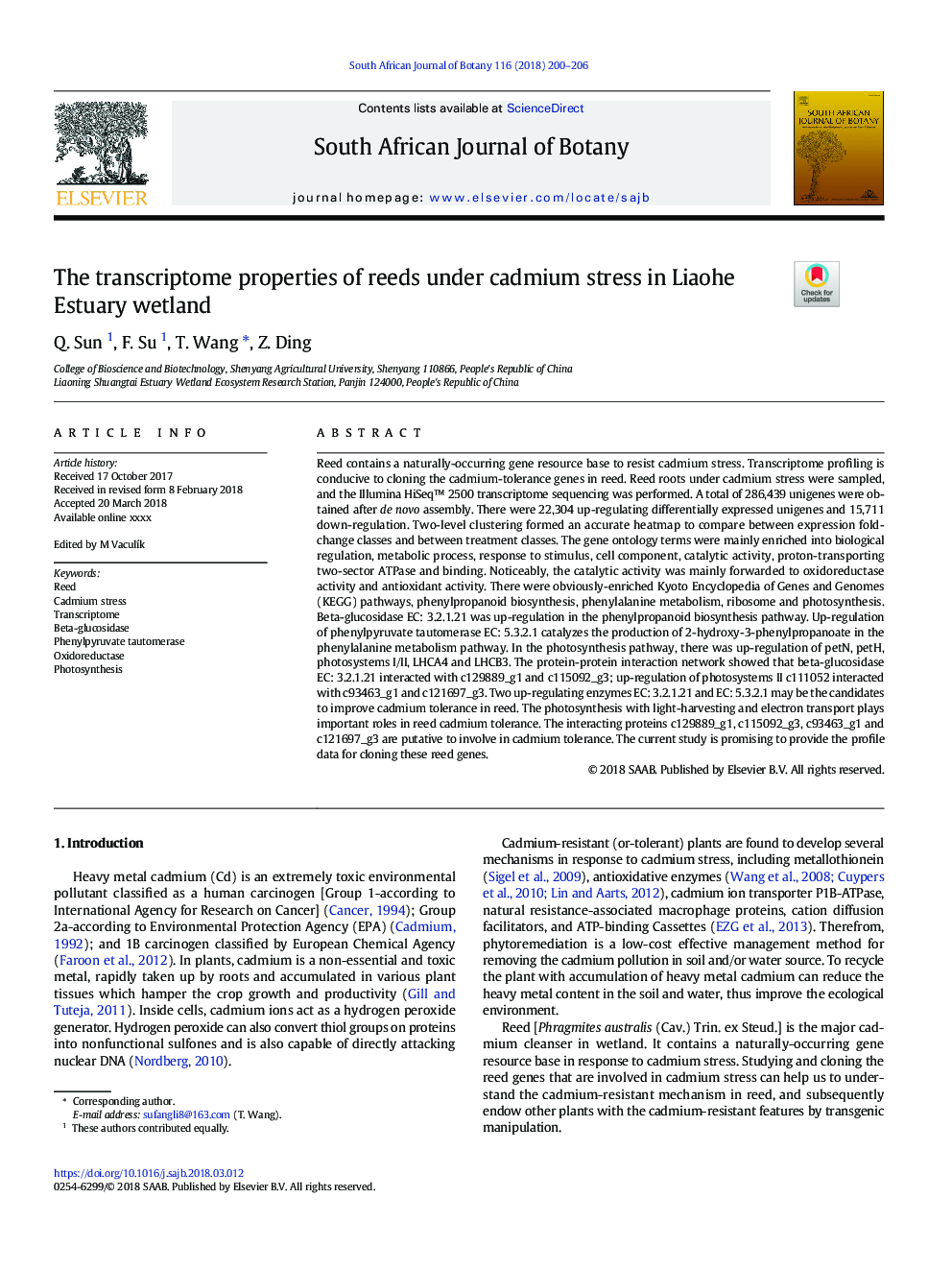| Article ID | Journal | Published Year | Pages | File Type |
|---|---|---|---|---|
| 8882290 | South African Journal of Botany | 2018 | 7 Pages |
Abstract
Reed contains a naturally-occurring gene resource base to resist cadmium stress. Transcriptome profiling is conducive to cloning the cadmium-tolerance genes in reed. Reed roots under cadmium stress were sampled, and the Illumina HiSeq⢠2500 transcriptome sequencing was performed. A total of 286,439 unigenes were obtained after de novo assembly. There were 22,304 up-regulating differentially expressed unigenes and 15,711 down-regulation. Two-level clustering formed an accurate heatmap to compare between expression fold-change classes and between treatment classes. The gene ontology terms were mainly enriched into biological regulation, metabolic process, response to stimulus, cell component, catalytic activity, proton-transporting two-sector ATPase and binding. Noticeably, the catalytic activity was mainly forwarded to oxidoreductase activity and antioxidant activity. There were obviously-enriched Kyoto Encyclopedia of Genes and Genomes (KEGG) pathways, phenylpropanoid biosynthesis, phenylalanine metabolism, ribosome and photosynthesis. Beta-glucosidase EC: 3.2.1.21 was up-regulation in the phenylpropanoid biosynthesis pathway. Up-regulation of phenylpyruvate tautomerase EC: 5.3.2.1 catalyzes the production of 2-hydroxy-3-phenylpropanoate in the phenylalanine metabolism pathway. In the photosynthesis pathway, there was up-regulation of petN, petH, photosystems I/II, LHCA4 and LHCB3. The protein-protein interaction network showed that beta-glucosidase EC: 3.2.1.21 interacted with c129889_g1 and c115092_g3; up-regulation of photosystems II c111052 interacted with c93463_g1 and c121697_g3. Two up-regulating enzymes EC: 3.2.1.21 and EC: 5.3.2.1 may be the candidates to improve cadmium tolerance in reed. The photosynthesis with light-harvesting and electron transport plays important roles in reed cadmium tolerance. The interacting proteins c129889_g1, c115092_g3, c93463_g1 and c121697_g3 are putative to involve in cadmium tolerance. The current study is promising to provide the profile data for cloning these reed genes.
Related Topics
Life Sciences
Agricultural and Biological Sciences
Agronomy and Crop Science
Authors
Q. Sun, F. Su, T. Wang, Z. Ding,
